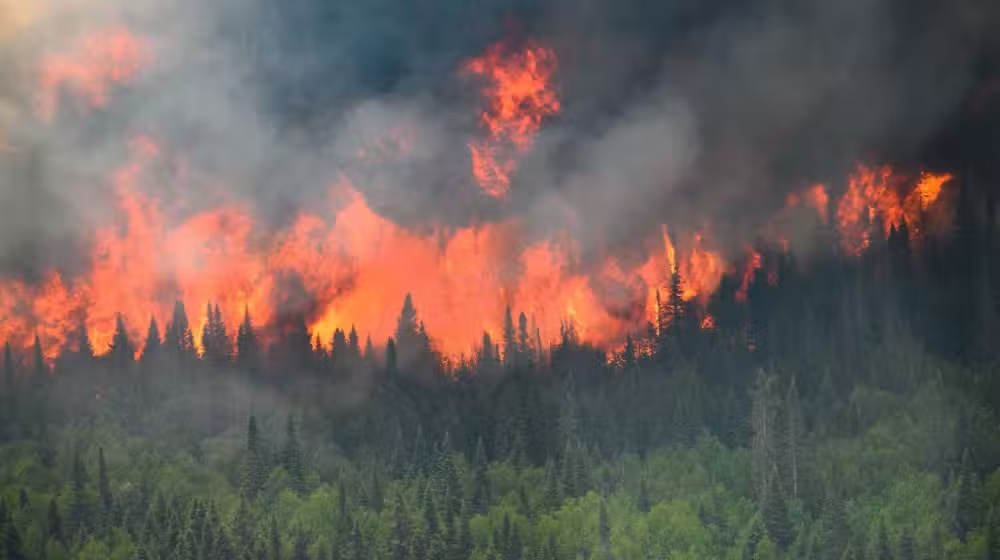A growing wildfire crisis in western Canada has now extended into a second province, forcing thousands to evacuate as dry weather worsens conditions.
On Thursday, Saskatchewan declared a state of emergency due to escalating wildfires, following the lead of neighboring Manitoba, where approximately 17,000 residents have already been evacuated from remote areas. Saskatchewan Premier Scott Moe labeled the situation as “very serious” and warned of more potential evacuations with no rainfall expected. So far, around 4,000 people have fled their homes in Saskatchewan this week.
Manitoba had earlier issued a province-wide emergency late Wednesday, facing what officials describe as the most severe start to wildfire season in years. Evacuations have affected several small towns and Indigenous communities, with evacuees reaching Winnipeg after challenging overnight travels. The Canadian Air Force has been assisting in evacuations from hard-to-reach regions.
Emergency shelters in Winnipeg are hosting displaced residents, many of whom arrived with minimal belongings. Luc Mullinder, head of the Manitoba Red Cross, described the evacuees as exhausted and uncertain about the condition of their homes.
READ MORE:
PIA Resumes Direct Dubai-Skardu Flights to Boost Tourism
Manitoba Premier Wab Kinew called it the province’s largest evacuation in recent memory, pointing to wildfires burning in every region as evidence of climate change. Nearly 200,000 hectares of forest have burned in Manitoba over the past month—three times the five-year average. Nationwide, 163 wildfires are active across Canada, with about half considered uncontrollable.
The mining town of Flin Flon, home to 5,000 residents, is the largest community to be evacuated so far, with fires advancing to within 500 meters of the town. Local authorities report low visibility and difficult firefighting conditions, with future containment efforts hinging heavily on weather developments.




